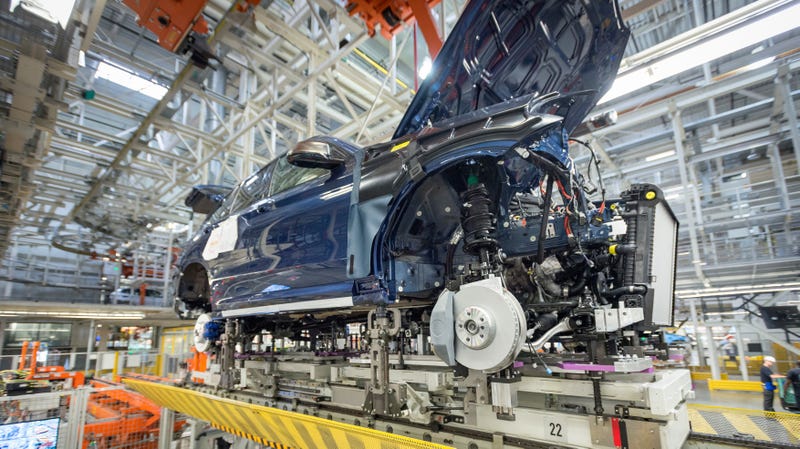
The U.S. Chamber of Commerce is, at heart, a deeply villainous organization, but, as they say, the enemy of your enemy can be your friend. The Chamber is going after President Trump hard, compiling a list of the states hurt the most because of retaliatory tariffs, and it’s no surprise that states that build cars will be among the worst hit.
You can view the impact on all 50 states via a map created by the U.S. Chamber here, though the takeaway is that many of them are states with huge amounts of Trump supporters. Texas, where the Toyota Tundra and Tacoma are built for example, could lose up to $3.9 billion in exports thanks to the trade war, while South Carolina, where Volvo recently opened a giant new assembly plant, could stand to lose around $3 billion. Other states where cars are manufactured, like Michigan and Kentucky, would also be hurt significantly, to the tune of $2.3 billion and $1.5 billion, respectively. And Ohio, where yours truly grew up and where manufacturing jobs have already been in decline for decades, could lose $3.3 billion in exports. (California, with nearly four times the population of Ohio, could lose $5.6 billion.)
We already knew that Trump’s trade war was bad, but beyond that, the point is that even if the U.S. Chamber’s estimates are wildly wrong, or even if they are simply made up (they aren’t—they’re based on data provided by the U.S. Department of Commerce, which is very much a different thing from the Chamber of Commerce), the meta story here is that an organization that should be extremely happy to have a Republican congress and a Republican president, is in fact very unhappy, so much so that they’re launching a public campaign to explain how unhappy.
“Tariffs are beginning to take a toll on American businesses, workers, farmers, and consumers as overseas markets close to American-made products and prices increase here at home,” U.S. Chamber President Thomas Donohue said in a statement. “The administration is threatening to undermine the economic progress it worked so hard to achieve.”
Advertisement
Hear, hear! Politics makes strange bedfellows, etc. And while absolute free trade isn’t perfect it’s better than the alternative, since, beyond companies losing profits it’s ultimately consumers who pay more for what is merely a global game of senseless brinksmanship.













